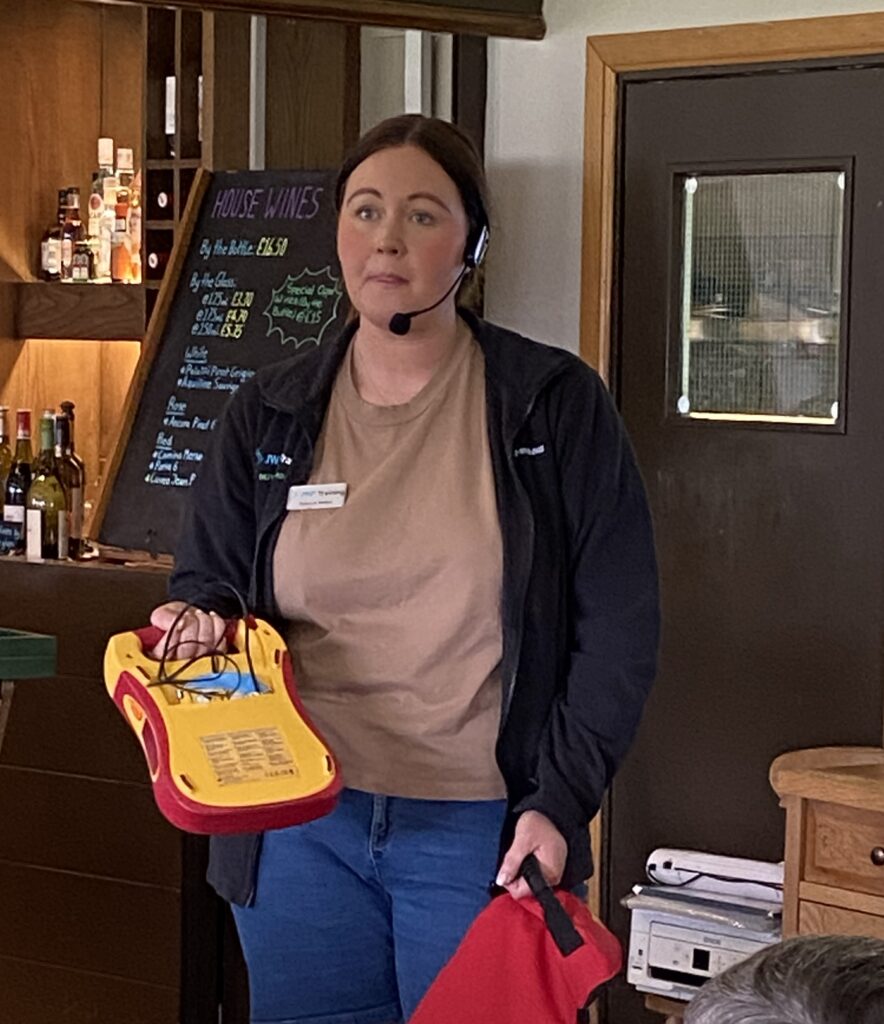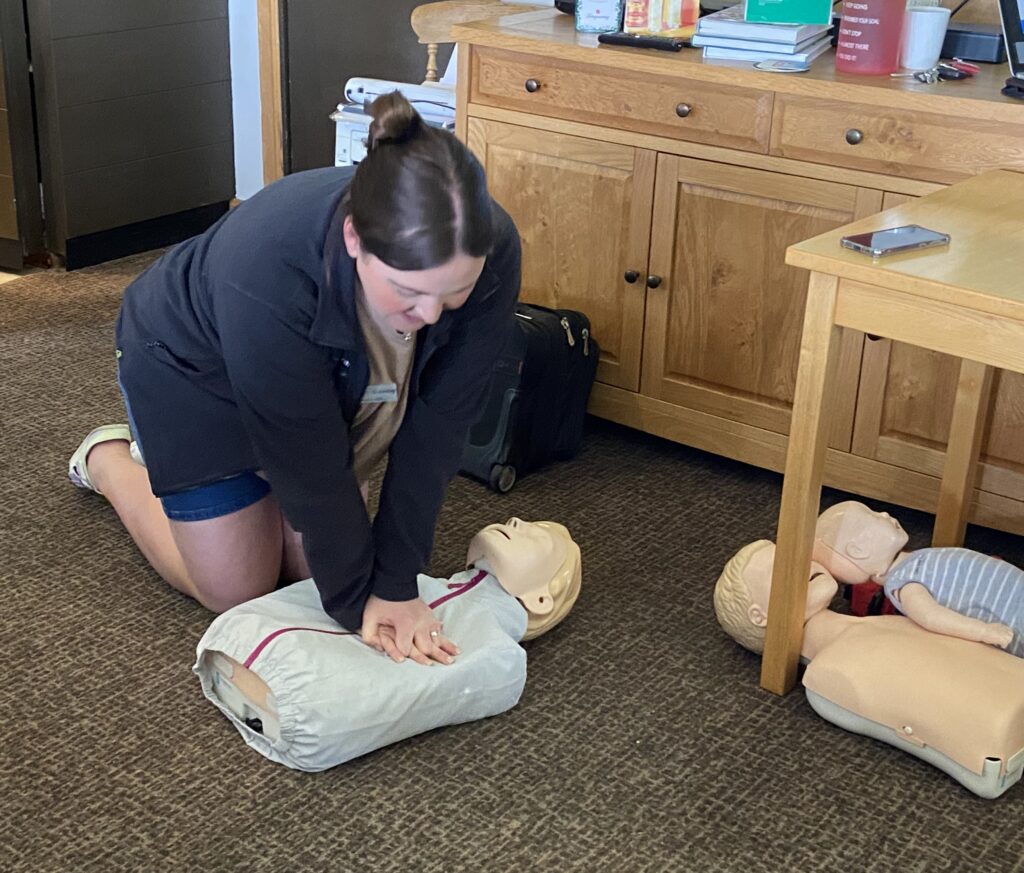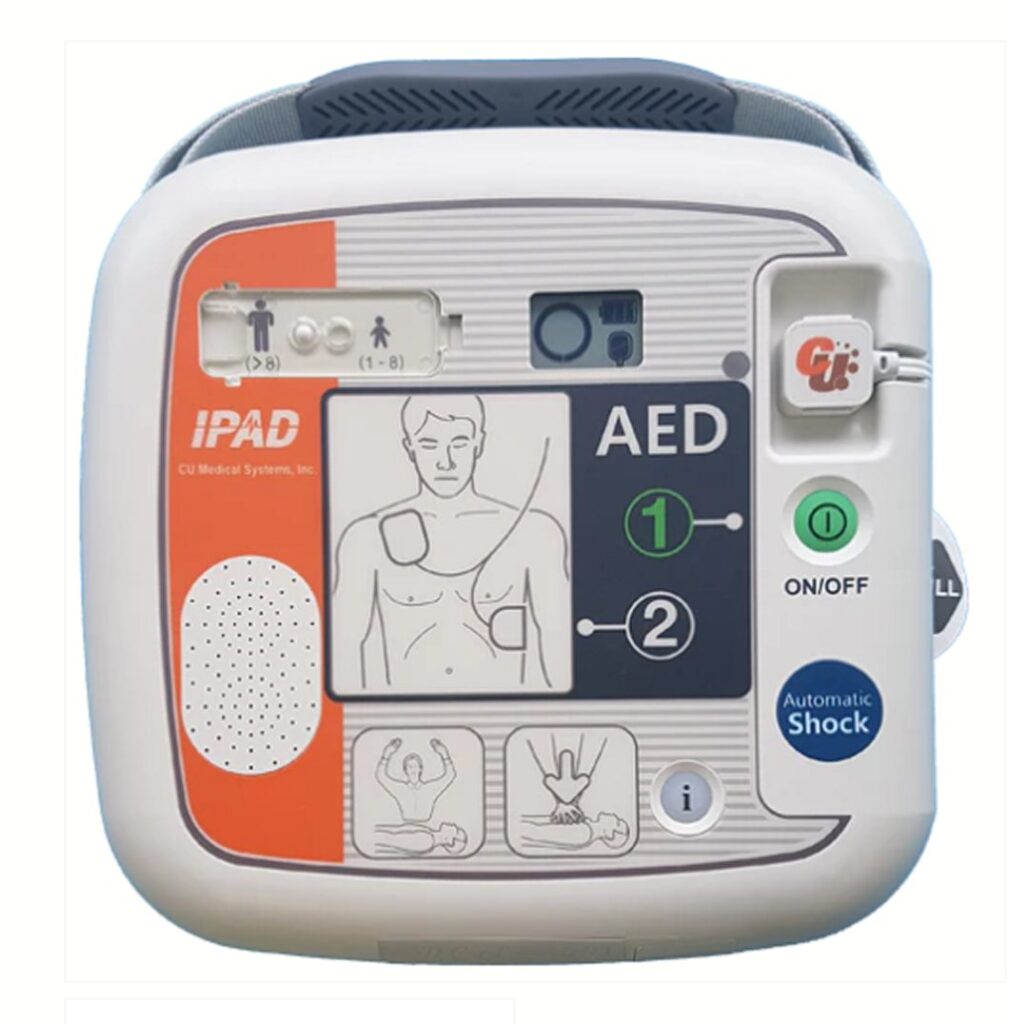In the sphere of first aid and CPR (cardiopulmonary resuscitation), a hands-on approach is vital.
And we were instructed on that hands-on approach, literally, as our speaker Rebecca Walton, from the Sheffield-based company JWP Training, guided us through the procedure that would be necessary if we were to save somebody’s life in the event of a medical emergency.
JWP is a leading provider of first aid training for businesses and individuals, providing tailored training courses which meet the requirements of both the Health and Safety Executive and Ofsted (they provide training services for company staff as well as to children as young as three in school and nursery settings).
Rebecca, who has more than 15 years’ experience in first aid training, said: “Our goal is to provide out clients with access to the necessary training and lifesaving skills that they require, and to do so at an affordable price. We strongly believe that everyone should be able to have access to these fundamental skills.”
A defibrillator is a device which gives a high energy shock to the heart of somebody who is in cardiac arrest, and Rebecca began by asking who knew the location of their nearest defibrillator (there is in fact one situated at our meeting venue, Fulwood Sports Club). The show of hands was encouraging, but of course actually operating one might be a different matter. Rebecca gave us graphic descriptions of the technique which would be necessary. There were many questions from the floor, and she too was on the floor, pumping the chest of one of her myriad collection of lifelike torsos.
According to the NHS website, if one has been trained in CPR – including rescue breaths (mouth to mouth) – and feel confident using your skills, you should give chest compression with rescue breaths. If you are not completely confident, attempt hands-only CPR instead. The technique is to kneel next to the victim and place the heel of your hand on the breastbone at the centre of their chest. Place the palm of your other hand on top of the hand that’s on their chest, and interlock your fingers.
Position yourself so that your shoulders are directly above your hands. Using your body weight (not just your arms), press straight down by five to six centimetres (two to two and a half inches) on the victim’s chest. Keeping your hands on their chest, release the compression and allow their chest to return to its original position. Repeat the compressions at the rate of 100 to 120 times a minute until an ambulance arrives. If you feel confident, after every 30 chest compressions give two rescue breaths. Tilt the person’s head gently and lift the chin up with two fingers. Pinch the person’s nose. Seal your mouth over their mouth and blow steadily the firmly into their mouth for about one second. Check that their chest rises, and give another rescue breath.
By using a defibrillator before an ambulance arrives – should one be available at your location – you can significantly increase the victim’s chance of survival. Defibrillators are relatively simple to use, and even give you voice instructions.
A valuable resource is the website defibfinder.uk. Type in your location using your postcode, and the site will give you up-to-date information on the location of nearby defibrillators, using data from The Circuit, the national defibrillator network. Alternatively, for the technically more savvy amongst us, the what3words location can be used (Yorkshire Ambulance Service are among many emergency services throughout the country that now recognise what3words).
For example, the postcode of Fulwood Sports Club (S10 3RL) will bring up the locations of the ten nearest defibrillators, starting with the clubhouse itself but also including Nether Green Infant School, Hallam Primary School, Hallam Community Hall, Tesco at Nether Green, Hallamshire Golf Club, Hallam Cricket Club and the Girls Guides’ outdoor activity centre.
And talking of Girl Guides, perhaps it might be timely to remind ourselves of the Scout movement’s motto: “Be prepared.”



